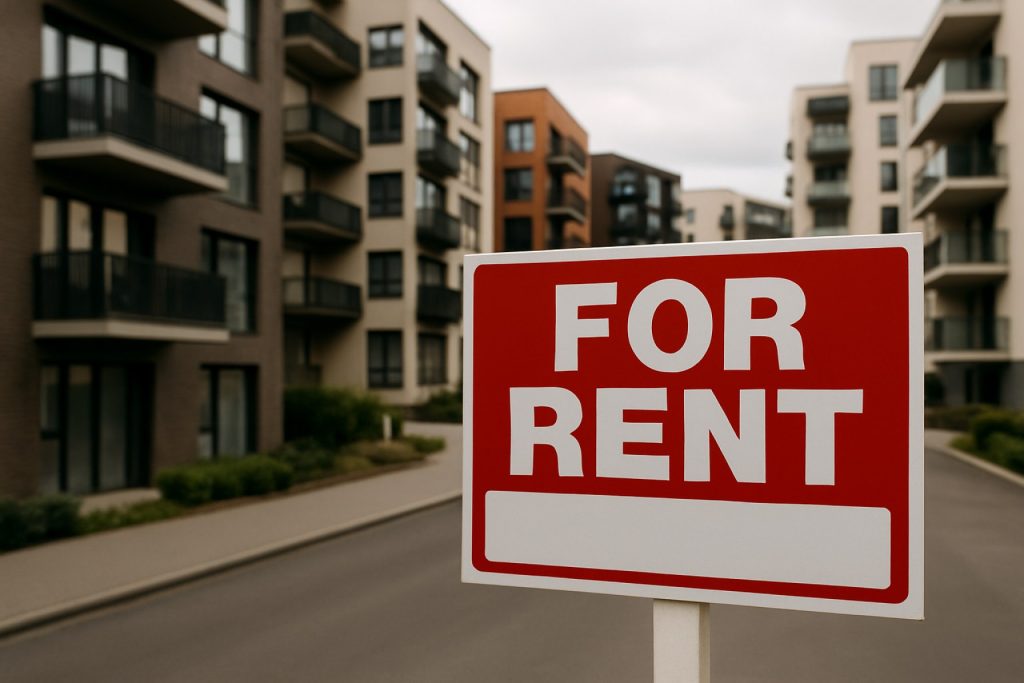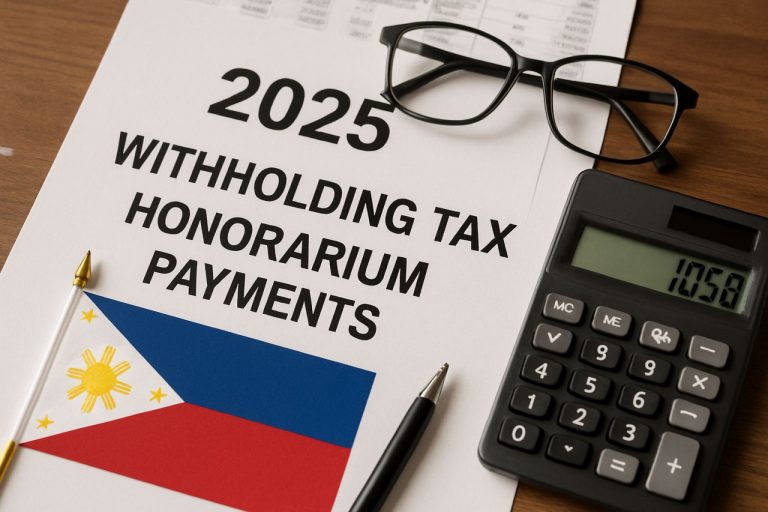
Table of Contents
- Executive Summary: Key 2025 Insights
- Rental Price Trends: 2024–2029 Forecast
- Demand Drivers: Demographics & Urbanization
- Supply Analysis: New Developments & Vacancy Rates
- Legal Framework: Rental Laws and Tenant Protections
- Taxation & Compliance: What Landlords Must Know
- Short-Term vs. Long-Term Rentals: Market Shifts
- Government Policies: Regulation & Housing Initiatives
- Risks & Opportunities: Economic and Social Factors
- Future Outlook: Expert Projections for 2025–2030
- Sources & References
Executive Summary: Key 2025 Insights
The rental market in Lithuania is undergoing notable transformation as of 2025, driven by demographic shifts, regulatory changes, and macroeconomic trends. Urbanization continues to concentrate demand in major cities, particularly Vilnius, Kaunas, and Klaipėda, with student populations and young professionals fueling the need for short- and long-term rental housing. According to the Statistics Lithuania, the country’s urban population has steadily increased, intensifying competition for available rental units.
Regulatory developments are shaping landlord and tenant relations. The Civil Code of Lithuania governs rental contracts, emphasizing the protection of both parties’ rights and obligations. In 2024, amendments to the Civil Code clarified procedures for evictions, deposit handling, and rental contract registration, aiming to promote transparency and reduce informal agreements. Compliance with registration requirements for rental contracts with the State Tax Inspectorate is strictly enforced, especially regarding income declaration and tax obligations for private landlords.
Key statistics highlight a tightening market. Average monthly rents in Vilnius rose by approximately 10% year-on-year as of early 2025, reaching record highs for both apartments and smaller residential units. Vacancy rates remain low in central districts, reflecting robust demand. The Bank of Lithuania has noted that rising mortgage rates and stricter lending criteria have diverted more residents toward renting, further supporting rent growth.
Compliance and legal risks are in focus: tax authorities have increased audits of unregistered rental properties, while the Lithuanian Courts report a steady caseload related to rental disputes, predominantly concerning late payments and return of deposits. These trends underscore the need for landlords and tenants to adhere strictly to formal processes and updated legislative requirements.
Looking ahead, the outlook for Lithuania’s rental market in 2025 and the subsequent years is for continued demand growth, particularly in urban centers. The government is evaluating further policy measures to increase rental housing supply and incentivize formalization of rental agreements. Barring significant economic shocks, rental prices are expected to remain elevated, with compliance and transparency remaining at the forefront of regulatory attention.
Rental Price Trends: 2024–2029 Forecast
The Lithuanian rental market has experienced considerable shifts in recent years, driven by macroeconomic developments, demographic changes, and regulatory adjustments. As of early 2025, rental prices in major cities—particularly Vilnius, Kaunas, and Klaipėda—remain elevated compared to pre-pandemic levels, though year-on-year growth rates have moderated following the rapid increases observed in 2022–2023.
According to data published by Statistics Lithuania, average rental prices in Vilnius rose by approximately 8% in 2023, with more modest growth of around 3-4% projected for 2024 and 2025. This deceleration reflects both increased supply from new residential developments and a gradual stabilization of demand as inflationary pressures subside and interest rates plateau. In Kaunas and Klaipėda, rental growth has been slightly slower, with annual increases estimated at 2-3% for 2024–2025.
Regulatory oversight remains a significant factor shaping market dynamics. Amendments to the Civil Code and related housing laws, effective since 2023, have strengthened tenant protections and clarified landlord obligations regarding contract registration, deposit handling, and termination procedures (Seimas of the Republic of Lithuania). The State Tax Inspectorate has also intensified efforts to formalize the rental sector, increasing inspections and promoting tax compliance for income derived from rental activities (State Tax Inspectorate). These measures are expected to promote transparency and stability, though some landlords have responded by adjusting rents to accommodate higher compliance costs.
Demographic trends will continue to influence rental demand through 2029. Urbanization, inward migration (notably from Ukraine and Belarus), and the growing number of young professionals are projected to sustain demand in Lithuania’s largest cities. The Statistics Lithuania forecasts a continued, albeit modest, increase in urban population over the next five years, supporting a positive outlook for rental occupancy rates.
Looking forward, the Lithuanian rental market is expected to maintain a moderate upward trajectory in rents, with annual increases averaging 2-4% in urban centers through 2029. The combination of regulatory reforms, improved compliance, and steady demand suggests a more balanced and transparent market environment for both landlords and tenants in the coming years.
Demand Drivers: Demographics & Urbanization
The rental market in Lithuania is significantly influenced by demographic changes and urbanization trends, shaping both the demand profile and the dynamics of supply. As of 2025, Lithuania’s population is experiencing gradual decline due to low birth rates and continued emigration, yet urban centers, particularly Vilnius, Kaunas, and Klaipėda, are witnessing population inflows driven by internal migration and international arrivals, including returning Lithuanians and foreign workers. According to Statistics Lithuania, urbanization rates have steadily increased, with approximately 70% of the population now residing in cities, up from 67% a decade ago.
Young professionals, students, and expatriates constitute a growing segment of the rental market, propelled by the concentration of universities, technology companies, and international businesses in urban areas. The expansion of multinational operations and start-up ecosystems, particularly in Vilnius, has created a continuous influx of talent seeking flexible and short-to-medium-term rental accommodation. Recent data from Statistics Lithuania shows that the number of students in higher education remains stable, supporting demand for student housing, while the share of foreign students has risen.
Household structure is another important factor. The average household size in Lithuania continues to shrink, with a growing number of single-person and two-person households, particularly in cities. This shift has led to increased demand for smaller rental units, such as studios and one-bedroom apartments. The trend aligns with data published by Statistics Lithuania indicating a steady increase in the number of housing units occupied by one or two persons.
In terms of policy, the Lithuanian government has recognized the importance of urban development and housing accessibility. The implementation of the Law on State Support for the Acquisition or Rent of Housing, as outlined by the Seimas of the Republic of Lithuania, aims to facilitate access to rental housing for targeted groups, including young families and vulnerable populations. Compliance requirements for landlords have also tightened, with increased focus on the registration of rental agreements and tax obligations, overseen by the State Tax Inspectorate.
Looking ahead to the next few years, demographic and urbanization trends are expected to maintain upward pressure on rental demand in Lithuania’s major cities, even as the national population contracts. The continued inflow of international talent and evolving household structures will likely reinforce the need for flexible, well-regulated rental options, sustaining market growth and shaping policy responses.
Supply Analysis: New Developments & Vacancy Rates
The Lithuanian rental market has undergone significant changes in recent years, shaped by economic factors, migration trends, and regulatory developments. As of 2025, the supply dynamics in Lithuania’s rental market, particularly in major cities such as Vilnius, Kaunas, and Klaipėda, are influenced by both new construction projects and existing housing stock.
In 2024, the construction sector experienced a slowdown in new residential project launches, primarily due to higher borrowing costs and increased construction material prices. According to data from the Statistics Lithuania, the number of newly completed residential dwellings decreased by approximately 10% compared to the previous year. This decline has had a direct impact on the availability of new rental units, particularly in urban centers where demand remains robust.
Vacancy rates in the rental market have remained low throughout 2024 and into 2025. The Bank of Lithuania notes that residential rental vacancy rates in Vilnius and other major cities are below 3%, reflecting a tight supply-demand balance. The low vacancy rate is also partly driven by net migration into Lithuania, as well as the return of students and young professionals seeking housing in urban locations.
New developments are increasingly focused on energy efficiency and compliance with the European Union’s sustainability directives. As of 2025, all new residential projects must adhere to the A++ energy efficiency standard, as stipulated by amendments to the Construction Technical Regulation approved by the Ministry of Environment of the Republic of Lithuania. This regulatory emphasis has extended project timelines but is expected to improve the quality and sustainability of rental housing stock in the medium term.
From a compliance perspective, landlords and developers are subject to enhanced transparency requirements regarding energy performance and tenant rights, as outlined by the Law on the Legal Status of Apartments and Other Premises in Multi-Apartment Buildings. This has increased administrative obligations, particularly for institutional landlords and property management companies.
Looking ahead, the supply of new rental properties is projected to remain constrained in the near term due to ongoing economic uncertainties and the lag associated with planning and permitting processes. However, governmental incentives for affordable and sustainable housing may stimulate new project starts from 2026 onwards. In summary, the Lithuanian rental market in 2025 is characterized by limited new supply, persistently low vacancy rates, and an evolving regulatory landscape focused on sustainability and tenant protection.
Legal Framework: Rental Laws and Tenant Protections
The legal framework governing the rental market in Lithuania is primarily established through the Civil Code of the Republic of Lithuania, which regulates residential lease agreements, landlords’ and tenants’ rights, and dispute resolution procedures. The Civil Code sets out mandatory requirements for rental contracts, including the necessity for written agreements, clauses on rent, term, termination, and obligations related to property maintenance (Seimas of the Republic of Lithuania).
Recent years have seen a heightened focus on transparency and compliance in the rental sector. Since 2023, tax compliance measures have intensified, with the State Tax Inspectorate (VMI) actively monitoring rental income declarations. Landlords are required to register rental contracts with the VMI and pay personal income tax on rental income, which stands at 15% for individuals. Efforts to reduce shadow rentals—leases not formally declared—have been successful, with a notable increase in registered contracts and rental income declarations. In 2024, the VMI reported a 20% rise in registered lease agreements compared to 2022 (State Tax Inspectorate under the Ministry of Finance of the Republic of Lithuania).
Tenant protections are embedded in the Civil Code, which provides minimum notice periods (typically three months for termination by landlords under most circumstances), restrictions on arbitrary eviction, and requirements for landlords to maintain habitable conditions. Disputes between tenants and landlords are generally resolved through civil courts, but mediation is increasingly encouraged to ease court workloads. The government has also published guidelines on fair rental practices to further educate both parties on their rights and obligations (State Consumer Rights Protection Authority).
In response to growing urban rental demand—especially in Vilnius, Kaunas, and Klaipėda—the Ministry of Environment is reviewing proposals for modernizing the legal framework, including clearer regulations on short-term rentals and digital registration processes. These reforms, expected to be debated in 2025, aim to address issues such as subletting, rapid rent increases, and the balance of power between tenants and landlords (Ministry of Environment of the Republic of Lithuania).
Looking forward, the Lithuanian rental market is expected to continue its transition toward greater formality and legal certainty. Key drivers will include ongoing digitalization, stricter enforcement of contract registration, and evolving consumer protections. These trends are anticipated to improve transparency, reduce informality, and foster a more stable and predictable environment for both tenants and landlords.
Taxation & Compliance: What Landlords Must Know
In 2025, Lithuania’s rental market continues to evolve, with a growing emphasis on regulatory compliance and tax transparency for landlords. The State Tax Inspectorate (Valstybinė mokesčių inspekcija, VMI) maintains strict oversight of rental income, and recent regulatory adjustments reflect national priorities to both stimulate the formal rental sector and ensure fair tax collection.
Landlords are required to declare all rental income, whether from residential or commercial property. As of the current regulatory framework, rental income is taxed either through the general income tax rate of 15% or, for individuals who meet certain conditions, a flat 15% rate on profit after deducting allowable expenses (such as maintenance and repair costs). The Lithuanian personal income tax code allows for a 30% expense deduction without proof of actual expenses, streamlining compliance for small landlords. Landlords must register their rental agreements with the Register of Legal Entities, and tenants are encouraged to ensure these contracts are reported, as this is often required for social benefit eligibility and residency registration.
Short-term rental operators—such as those using Airbnb or similar platforms—are also subject to income tax. In 2023 and 2024, the VMI intensified audits of digital rental income, and this trend is expected to continue in 2025. Digital platforms are obliged to share transaction data with tax authorities, facilitating compliance monitoring and enforcement. Failure to declare rental income can result in penalties, fines, and tax arrears recovery.
- According to State Tax Inspectorate, in 2023 over 40,000 individuals declared rental income, marking a 12% annual increase and reflecting improved compliance.
- Landlords are also responsible for social security contributions if rental activity is considered a self-employed business, though most private landlords renting a small number of properties are exempt.
- New anti-money laundering (AML) measures, as outlined by the Bank of Lithuania, require property owners and agents to report suspicious transactions, particularly in high-value or cross-border arrangements.
Looking ahead, Lithuania is expected to further digitalize property and tax records, reducing administrative burdens and enhancing enforcement. Landlords should remain vigilant for updates to tax codes and reporting requirements, as the government’s ongoing digital transformation aims to close gaps in the rental market and promote a level playing field. Regular consultation of resources from the State Tax Inspectorate and Bank of Lithuania is recommended for compliance in the coming years.
Short-Term vs. Long-Term Rentals: Market Shifts
The Lithuanian rental market in 2025 continues to demonstrate dynamic shifts between short-term and long-term rental segments, influenced by legislative adjustments, economic factors, and evolving consumer preferences. Historically, Lithuania’s rental market has been characterized by a predominance of long-term leases, particularly in major cities such as Vilnius, Kaunas, and Klaipėda. However, recent years have seen substantial growth in short-term rentals, partly driven by tourism and digital nomad trends.
In 2024–2025, the short-term rental sector—comprising platforms like Airbnb and Booking.com—remained robust, particularly in Vilnius. Official statistics show that the number of short-term rental listings in Vilnius rose by approximately 12% compared to 2023, reflecting both increasing tourist arrivals and a growing appetite among property owners to capitalize on higher yields from short-term lets. According to the Statistics Lithuania, overnight stays in accommodation establishments reached new highs in early 2025, further supporting demand for short-term rentals.
Legislation has begun to reflect the need for greater regulation of the burgeoning short-term rental market. Amendments to the Law on Housing and related municipal regulations in Vilnius now require property owners to register short-term rental properties and adhere to specific safety, tax, and reporting requirements. These measures, introduced in late 2024, are being enforced by municipal authorities and the State Tax Inspectorate, with increased inspections and penalties for non-compliance. Property owners must now ensure that rental income is properly declared, and that health and safety standards are met, aligning Lithuania with broader European trends toward tighter oversight of the sector.
Despite the expansion of short-term rentals, the long-term rental market remains strong, buoyed by migration, urbanization, and a relatively low homeownership rate among young professionals. Rental prices for long-term leases in Vilnius increased by 7% in the first half of 2025, as reported by the Statistics Lithuania. However, some landlords have shifted inventory from long-term to short-term rentals, seeking greater profitability amid rising tourist numbers.
Looking ahead, the Lithuanian rental market is expected to experience further segmentation. Regulatory harmonization may narrow the profitability gap between short- and long-term rentals. The government, through the Ministry of Environment, is also considering measures to encourage longer-term renting and increase housing affordability. As such, market participants should anticipate ongoing regulatory evolution, heightened compliance obligations, and increased competition within both rental segments in the coming years.
Government Policies: Regulation & Housing Initiatives
The Lithuanian government has recognized the growing significance of the rental housing sector, especially in the context of urbanization, changing demographic patterns, and increased demand from young professionals and international residents. In recent years, the state has advanced several policies and regulatory initiatives aimed at both protecting tenants and encouraging transparency and compliance within the rental market.
A cornerstone of regulation is the Civil Code of the Republic of Lithuania, which governs residential tenancy agreements, outlining rights and obligations for both landlords and tenants. In 2023, amendments were introduced to simplify the registration of rental contracts and to clarify eviction procedures, thereby increasing legal certainty for both parties. The State Tax Inspectorate (VMI) has intensified oversight, launching digital tools to encourage the declaration of rental income and to combat the shadow rental market. Between 2022 and 2024, VMI reported a rise in declared rental income by over 25%, indicating improved compliance and transparency State Tax Inspectorate (VMI).
In response to housing affordability concerns, the Ministry of Social Security and Labour expanded state-supported rental schemes, including subsidies for low-income households and the “Social Housing Fund” program, which aims to increase the stock of municipally owned rental dwellings. As of 2024, the government set targets to build or acquire 1,500 new social rental units by 2026, prioritizing vulnerable groups and families with children Ministry of Social Security and Labour.
Compliance with safety and energy efficiency standards has also been prioritized. The Ministry of Environment, through amendments to the Law on Construction and related regulations, enforces minimum habitability and energy performance requirements for rental properties. Landlords are now required to provide up-to-date Energy Performance Certificates and ensure fire safety compliance as a condition for renting out their properties Ministry of Environment.
Looking forward to 2025 and beyond, policy direction is expected to focus on further digitalization of rental transactions, expanded tenant protections (including clearer rules on rent increases and deposit handling), and continued state investment in affordable rental housing. The government’s housing strategy forecasts a gradual stabilization of rental prices and a moderate increase in the supply of regulated rental units, particularly in Vilnius, Kaunas, and Klaipėda, as new initiatives take effect Ministry of Environment.
Risks & Opportunities: Economic and Social Factors
The rental market in Lithuania is experiencing dynamic shifts in 2025, influenced by economic resilience, demographic trends, and evolving legal frameworks. Rental demand remains robust, buoyed by ongoing urbanization and the increasing mobility of the workforce. According to the Statistics Lithuania, the nation’s urban population continues to grow, particularly in Vilnius, Kaunas, and Klaipėda, intensifying demand for rental accommodation in these cities.
A notable risk in the sector is the persistent gap between supply and demand in major urban centers, leading to upward pressure on rents. In 2024, average monthly rents in Vilnius increased by approximately 10% year-on-year, a trend projected to continue in 2025 as construction activity struggles to keep pace with demand (Statistics Lithuania). This may pose affordability challenges for lower-income households and young professionals.
The legal landscape governing rental agreements has seen gradual refinement. The Civil Code of the Republic of Lithuania sets out the framework for residential leases, including rights and obligations for both lessors and lessees (Seimas of the Republic of Lithuania). In recent years, authorities have tightened enforcement against informal rental activity, aiming to improve tax compliance and tenant protections. The State Tax Inspectorate has increased oversight to ensure rental income is properly declared, which is expected to further formalize the market and reduce legal risks for both parties.
On the opportunity side, the government’s ongoing efforts to stimulate affordable housing development may help mitigate supply constraints in the medium term, particularly through public-private partnerships and incentives for new construction (Ministry of Environment of the Republic of Lithuania). Furthermore, Lithuania’s stable economic outlook and growing foreign investment, including a steady influx of international students and expatriates, are likely to sustain demand for rental properties.
Looking ahead, the rental market’s primary risks center on affordability, regulatory compliance, and supply shortages in key cities. Conversely, opportunities arise from the formalization of the sector, government-backed development initiatives, and demographic trends favoring rental demand. Market participants will need to navigate evolving regulations and compliance requirements while capitalizing on growth prospects in Lithuania’s urban centers.
Future Outlook: Expert Projections for 2025–2030
The rental market in Lithuania is undergoing significant transformation, shaped by recent legislative changes, evolving compliance standards, and shifting demographic patterns. As of 2025, the sector is characterized by a tightening regulatory environment and continued urbanization, particularly in Vilnius, Kaunas, and Klaipėda.
A crucial development affecting the rental market is the amendment of the Civil Code and related housing regulations. These changes, implemented in 2023–2024, have reinforced tenant protections, clarified landlord obligations, and introduced stricter requirements for written contracts and deposit handling (Seimas of the Republic of Lithuania). The government has also increased oversight of short-term rental platforms, aiming to reduce tax evasion and ensure compliance with safety standards (State Tax Inspectorate under the Ministry of Finance). Landlords now face more rigorous documentation and reporting requirements, with penalties for non-compliance escalated as of 2024.
Key statistics highlight both opportunities and challenges in the market. According to data from the Statistics Lithuania, the proportion of households renting their primary residence rose from 13% in 2018 to approximately 18% in 2024, reflecting both rising property prices and increased mobility among young professionals. Rental prices in major cities have grown by an average of 7% annually since 2021, with Vilnius leading the surge, though the pace is expected to moderate to around 3–4% per year through 2030 as new supply gradually enters the market.
Experts anticipate several key trends shaping the 2025–2030 outlook:
- Continued urbanization and a stable influx of expatriates, particularly from Ukraine and Belarus, sustaining demand for rental properties.
- Gradual expansion of build-to-rent and institutional investment, especially in Vilnius, spurred by ongoing government efforts to professionalize the sector (Invest Lithuania).
- Broader adoption of digital tenancy management platforms, driven by compliance with new e-government and tax reporting standards (State Tax Inspectorate under the Ministry of Finance).
- Potential stabilization of rental yields due to increased supply and slower growth in urban population, although the market remains attractive relative to other EU capitals.
Looking ahead, the Lithuanian rental market is expected to remain dynamic but increasingly regulated. Stakeholders should closely monitor further legislative adjustments, particularly as the government seeks to balance tenant protection with investment incentives and systemic transparency.



